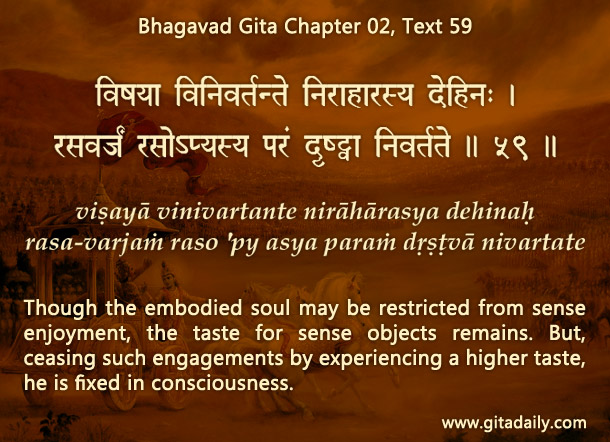Saying no to temptation doesn’t mean much if we don’t mean no
Suppose someone we know succumbs to an unworthy temptation. On being confronted about their wrongdoings, they may apologize and promise to never repeat that lapse. And yet they soon have a relapse. If this pattern of resolving and relapsing repeats itself, we may stop taking their words seriously.
If we turn the flashlight on ourselves, we may find a similar difference between our own words and actions. Why the difference? Often, it’s because we don’t mean what we say; our words are just tongue-deep, not heart-deep. This doesn’t necessarily mean we are hypocritical; it may just mean our convictions don’t run deep enough. Even when we resolve to give up something, we still retain the notion that it is enjoyable. The Bhagavad-gita (02.59) cautions that when we abstain from temptation, we feel as if we are starving, as if we are deprived of something as essential as food.
To abstain sustainably, we need to challenge that presumption of deprivation: “Is this actually as enjoyable as it seems? Or even if it is enjoyable, is it worth the price?” And to ground that challenge on a firm foundation, we need a higher taste: an experience of higher happiness, or at least the intelligence to see and seek a higher happiness (02.61). Our conviction needs to be aligned with our resolution. With that conviction, our resolution on saying yes to something higher that fulfills the need fulfilled by the pleasure we are saying no to.
When we thus reinforce the resolution to disconnect from something unworthy with a resolution to connect with something higher, then we can increasingly translate our articulated no into an enacted no.
Think it over:
- Why is there a difference between our words and actions?
- How can we translate our articulated no into an enacted no?
- What resolution do you struggle with? How can you reinforce that resolution with conviction and a more positive resolution?
To know more about this verse, please click on the image
Explanation of article:
https://www.youtube.com/watch?v=NIFOLl5FVwo&feature=youtu.be
Podcast:


Leave A Comment